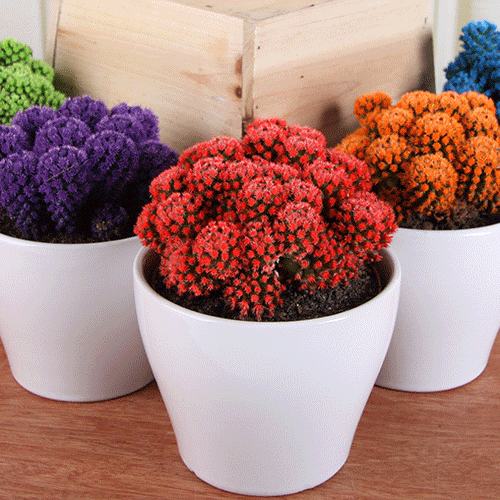It’s almost the official start of summer! The sun is shining and the weather is great (or getting there) for spending
more time outdoors. Whether you’re partying, barbecuing, or just soaking up some rays, it’s important to keep your pet’s
safety in mind. Prevent mishaps with our tips to help protect your favorite animals during the “Dog Days” of the
season.
Party Smart
Barbequing is one of the best parts of summer, but remember that the
food and drink you serve your guests may be poisonous to pets. Keep alcoholic beverages away from animals, and remind
guests not to give them table scraps or snacks. Raisins, grapes, onions, chocolate, and avocado are all common at
barbecues -- and can be toxic to animals.
Be Cool Near the Pool
Don’t leave pets
unsupervised around a pool or lake -- not all dogs are expert swimmers! Introduce your pets to water gradually and make
sure they wear flotation devices when on boats. Also, try to keep your dog from drinking pool water, which could contain
potentially dangerous chemicals like chlorine.
Skip the Spray
Unless specifically designed
for animals, insect repellant and sunscreen can be toxic to pets. Signs of repellent toxicity include drooling,
vomiting, diarrhea, excessive thirst, and lethargy. DEET, a common insecticide in products for humans, may cause
neurological issues if applied to dogs.
Made in the Shade
Pets can get dehydrated quickly,
so if you spend time outside, give them plenty of fresh, clean water and make sure they have a shady place to get out of
the sun. Note that animals with flat faces, like Pugs and Persian cats, are more susceptible to heat stroke since they
cannot pant as effectively. These pets, along with the elderly, the overweight, and those with heart or lung diseases,
should be kept cool in air-conditioned rooms as much as possible.
IDs, Please
Time
spent outdoors comes with the added risk of pets escaping. Make sure that your pet is fitted with a microchip or ID tag
with identifying or both. It’s always better to be safe than sorry.
For more tips on how to keep your pet safe during the holidays, visit the ASPCA website. If you think your pet may have been exposed a potentially toxic substance, contact your local veterinarian or the ASPCA Animal Poison Control Center.
 The ASPCA was founded in 1866 and is a non-profit organization devoted to ensuring the
kind and respectful treatment of animals. Animal Poison Control Center (APCC) is a resource available 24 hours a day,
365 days per year.
The ASPCA was founded in 1866 and is a non-profit organization devoted to ensuring the
kind and respectful treatment of animals. Animal Poison Control Center (APCC) is a resource available 24 hours a day,
365 days per year.
Party Smart
Barbequing is one of the best parts of summer, but remember that the
food and drink you serve your guests may be poisonous to pets. Keep alcoholic beverages away from animals, and remind
guests not to give them table scraps or snacks. Raisins, grapes, onions, chocolate, and avocado are all common at
barbecues -- and can be toxic to animals.Be Cool Near the Pool
Don’t leave pets
unsupervised around a pool or lake -- not all dogs are expert swimmers! Introduce your pets to water gradually and make
sure they wear flotation devices when on boats. Also, try to keep your dog from drinking pool water, which could contain
potentially dangerous chemicals like chlorine.Skip the Spray
Unless specifically designed
for animals, insect repellant and sunscreen can be toxic to pets. Signs of repellent toxicity include drooling,
vomiting, diarrhea, excessive thirst, and lethargy. DEET, a common insecticide in products for humans, may cause
neurological issues if applied to dogs.Made in the Shade
Pets can get dehydrated quickly,
so if you spend time outside, give them plenty of fresh, clean water and make sure they have a shady place to get out of
the sun. Note that animals with flat faces, like Pugs and Persian cats, are more susceptible to heat stroke since they
cannot pant as effectively. These pets, along with the elderly, the overweight, and those with heart or lung diseases,
should be kept cool in air-conditioned rooms as much as possible. IDs, Please
Time
spent outdoors comes with the added risk of pets escaping. Make sure that your pet is fitted with a microchip or ID tag
with identifying or both. It’s always better to be safe than sorry.For more tips on how to keep your pet safe during the holidays, visit the ASPCA website. If you think your pet may have been exposed a potentially toxic substance, contact your local veterinarian or the ASPCA Animal Poison Control Center.
 The ASPCA was founded in 1866 and is a non-profit organization devoted to ensuring the
kind and respectful treatment of animals. Animal Poison Control Center (APCC) is a resource available 24 hours a day,
365 days per year.
The ASPCA was founded in 1866 and is a non-profit organization devoted to ensuring the
kind and respectful treatment of animals. Animal Poison Control Center (APCC) is a resource available 24 hours a day,
365 days per year.

















